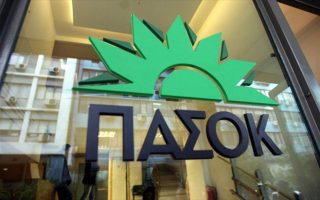Two of seven existing channels survive license tender, which critics say is illegal

Just two of the country’s seven private TV stations survived a grueling three-day auction launched by the government, which has drastically changed the country’s broadcasting landscape.
Existing channels Skai and Antenna were awarded two of the four licenses up for grabs, while the remaining two went to new groups – one linked to shipping magnate Vangelis Marinakis, who owns Greek soccer club Olympiakos, and the other to a construction group owned by Yiannis Kalogritsas.
However, the contest’s legitimacy was questioned by opposition parties and the losing bidders, who described it as a political ploy to divert the public’s attention from the tough policies that the leftist-led government is pushing through and a covert effort to control the country’s media by promoting TV stations more to its liking.
Skai took the first license with the smallest bid (43.6 million euros). The second license went to the Toxotis construction group, owned by Kalogritsas, for 52.6 million euros, while Antenna secured the third with the largest bid among the lot, 75.9 million euros.
The Alter Ego group linked to Marinakis bought the fourth license with 73.9 million euros.
The auction added 246 million euros to the state coffers, which Prime Minister Alexis Tsipras pledged to invest in state welfare programs.
However, experts argue that, according to the rules governing the auction, only a third of the amount will be immediately available.
Tsipras said the outcome of the tender will finally put an end to collusion between politicians and business interests that have dogged private TV since its inception in Greece in the late 80s.
“[The tender] sends a message to foreign investors that there are rules in this country… that governments will no longer be playing political games awarding projects,” he said.
However, he is expected to face legal challenges over the ensuing 90-day period, at the end of which the licenses will be officially activated, as reports have not ruled out the possibility of it being shot down as unconstitutional by the the Council of State, the country’s highest legal authority.
Further obstacles could be put in the way by losing bidders including Star and Alpha, whose employees stand to lose their jobs.
New Democracy said that by offering just four licenses, the government was essentially stifling free expression, and insisted that available digital technology in Greece allows for more than four TV stations.
The conservative party pledged to increase the number of licenses as far as current technology allows once it comes to power.
PASOK warned of layoffs at already existing channels that failed to win a license.
“The arbitrary number of four licenses will lead to an oligopoly in the media,” PASOK said, adding that the controversial procedure had raised “serious issues of transparency, legality and credibility.”





